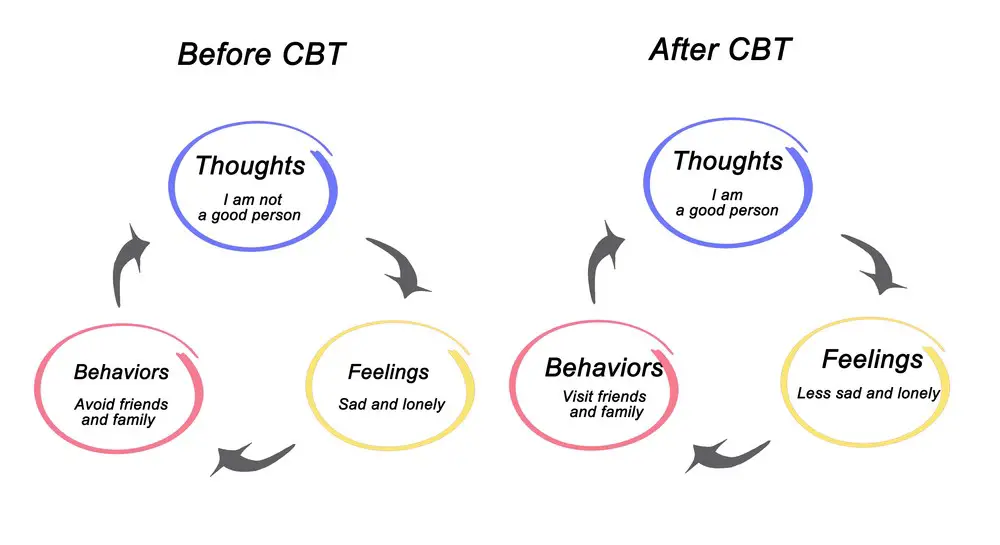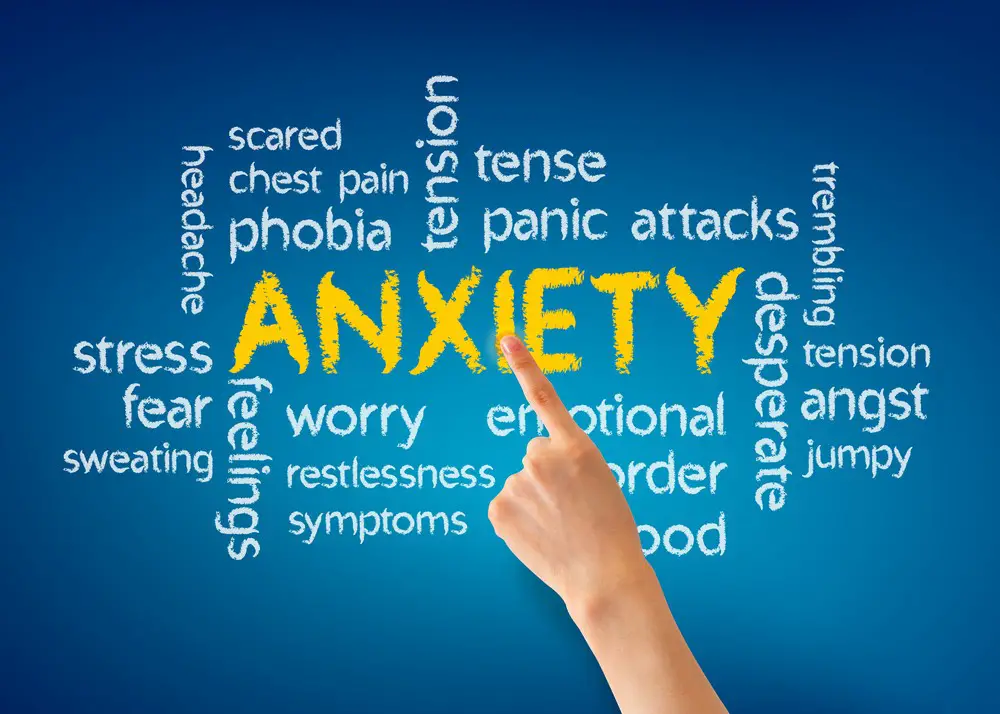As a BetterHelp affiliate, we receive compensation from BetterHelp if you purchase products or services through the links provided
Anxiety disorders are experienced by nearly 30 percent of citizens in the US alone. It’s one of the most significant ailments that can cause debilitating symptoms in those who experience it, and too few have coping mechanisms that help them calm down, center, and relax. When an individual is experiencing an anxiety attack, the brain moves a mile a minute, and it can be tough to conceptualize solutions at the moment. That’s why it’s a good idea to formulate techniques and tools beforehand when you’re not experiencing anxiety so that when it happens, you have a toolbox you can dig into to help you calm down. In this article, we’ll give five tips that are popular aids to support a calmer set of solutions the next time you experience anxiety. Keep reading to learn more!

1. Cannabis Products
Cannabis products are extremely popular for dealing with anxiety at home. Cannabis is essentially becoming legal across the United States, so, likely, most people could easily access it by searching for a dispensary near me open for business. However, if you live in a state that both legalize recreational marijuana and allows delivery, check out the excellent service in states that offer it. When one experiences anxiety, they tend to stay in safe and comforting spaces. Staying at home and getting cannabis delivered may help ease the anxiety of going out in public.
2. Create a Meditation Room
Regular meditation is perfect for coping with anxiety. Meditation requires more focus than simply consuming some cannabis, but it can significantly benefit anxiety. If you’re looking to include this practice as a part of your anxiety coping tool set, try dedicating a particular space in your home for meditation. Somewhere you can close off outside distractions is ideal to dedicate your focus inward and calm your nervous system down. Remember that meditation is a practice; the more you practice, the better you’ll get! Having trouble at first isn’t a sign of failure; it’s just a part of the process. Be patient as you include this in your life!
3. Dedicate an Hour to Reading on Days Off
In today’s fast-moving, screen-focused world, reading is becoming a forgotten tool for escapism. Watching TV, scrolling through social media, or web browsing are easy ways to escape. So easy, it leaves little for our brain to do or exercise. Today, we collectively have a much lower attention span than our society has ever had, and this is due to the immediate availability of bright, moving entertainment. But reading requires us to exercise our brain, interpret information, and create a mental image out of a story. It requires a great deal of focus, a kind of focus that seems to have been forgotten by the newer generations. Screen time and anxiety can be linked, and setting time aside specifically for reading and putting your phone away is a great way to curb anxiety all around in your life.
4. Limit Alcohol Consumption
Alcohol is another big culprit for anxiety. Alcohol aggravates the nervous system, makes it harder to sleep, and depletes our serotonin, making someone who drinks heavily more prone to generalized anxiety disorders. Reducing alcohol will help with sleep, energy, and overall health. If you drink frequently, try to note how often you do it and make an effort to cut it down to half. You’ll indeed feel the difference immediately.

5. Cognitive Behavioral Therapy
Anxiety can sometimes be solved from home simply by changing our habits and taking care of our bodies, but anxiety can certainly be a sign of other mental health issues. If you find that your anxiety interferes with your life, it might be a good idea to seek out therapy. Therapy can help us understand our triggers and what may be causing our anxiety if lifestyle changes do not elicit changes in how we feel. Therapy is an excellent idea for everyone in the world we live in today.
Conclusion
Having tools for coping with anxiety at home can make or break the quality of a person’s life. For some, it may be as simple as changing their habits. Adding meditation, eating right, trying CBD or cannabis to curb symptoms, and limiting alcohol are all examples. However, when those things don’t work, it may be a good idea to seek a professional therapist’s help to understand why the anxiety is occurring in the first place. Anxiety is expected because of outside stress like work, family, or relationship issues. But feeling anxiety for what seems like no reason is something one should bring to a medical professional as soon as possible.
- 7 Ideas to Help You Relax and Unwind on a Family Vacation - April 27, 2025
- How Having Cybersecurity Protection Helps You Relax - April 25, 2025
- 8 Reasons Why Spending Time Outside Calms You Down - April 25, 2025
This site contains affiliate links to products. We will receive a commission for purchases made through these links.



